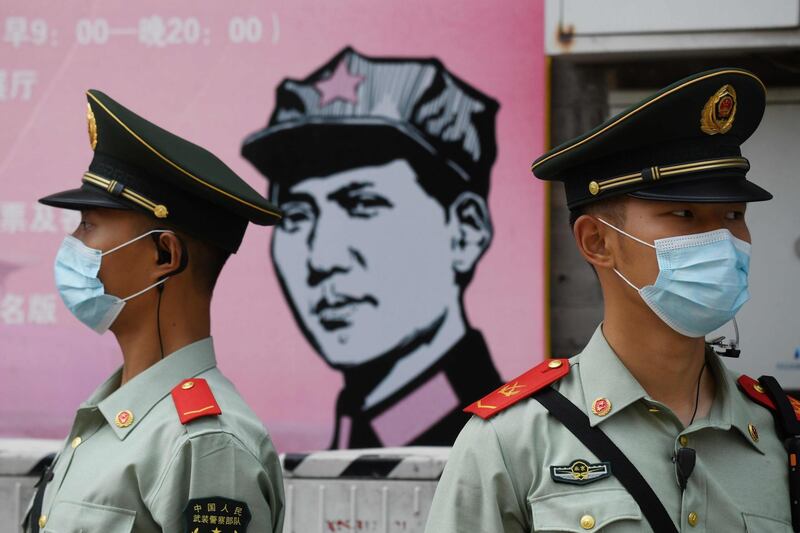A proposal to enact new Hong Kong security legislation was submitted to China's rubber-stamp on Friday, state media said, a move expected to fan fresh protests in the semi-autonomous financial hub.
The proposal, which has been condemned by the United States and Hong Kong pro-democracy figures as an assault on the city's freedoms, was tabled on the opening day of the week-long National People's Congress, Xinhua news agency said.
Parliament spokesman Zhang Yesui late on Thursday said the chamber would consider a proposal for security legislation in Hong Kong.
Details have not been spelled out but the proposal for the security law is expected to ban treason, subversion and sedition. It follows repeated warnings from China's communist leaders that they would no longer tolerate dissent in Hong Kong, a semi-autonomous city that endured seven months of massive pro-democracy protests last year.
Hong Kong activists called for a protest march on Friday against the new legislation. While it was unclear whether the unauthorised march, proposed to start at noon near the central financial district and end at China's Liaison Office, will materialise, it was a sign that Hong Kong could soon plunge into renewed unrest.
The move hit financial markets, due to concerns the semiautonomous city's status as a global financial hub was at risk, with Hong Kong stocks selling off as China's parliament sat on Friday to discuss the new law.
Hong Kong has been allowed a limited form of autonomy since returning from British to Chinese rule in 1997, with those unique freedoms enshrined under a "One Country, Two Systems" handover agreement.
In a state-of-the-nation speech opening China's annual parliamentary session on Friday, Premier Li Keqiang said only that China would "establish and improve the legal systems and mechanisms to safeguard national security" in Hong Kong.
Activists said the planned national security law, if implemented, would be one of the most significant erosions of Hong Kong's liberties since 1997.
In announcing the plans late on Thursday night, the Communist Party gave few specifics for the planned law other than it would strengthen "enforcement mechanisms" for Hong Kong.
Article 23 of Hong Kong's mini-constitution, the Basic Law, says the city must enact a law to prohibit "treason, secession, sedition (and) subversion" against the Chinese government.
But the clause has never been implemented due to fears it would destroy Hong Kong's cherished civil rights.
An attempt to have Article 23 pass through Hong Kong's legislature in 2003 was shelved after half a million people took to the streets in protest against it.
The United States reacted swiftly to China's announcement, with State Department spokeswoman Morgan Ortagus warning that imposing such a law on Hong Kong would be "highly destabilising, and would be met with strong condemnation from the United States and the international community".
President Donald Trump gave a vague initial response that nevertheless warned of a stronger reaction.
"I don't know what it is, because nobody knows yet. If it happens, we'll address that issue very strongly," Trump said.
The US Congress late last year angered China by passing a law that would strip Hong Kong's preferential trading status if it is no longer considered autonomous from the mainland.







